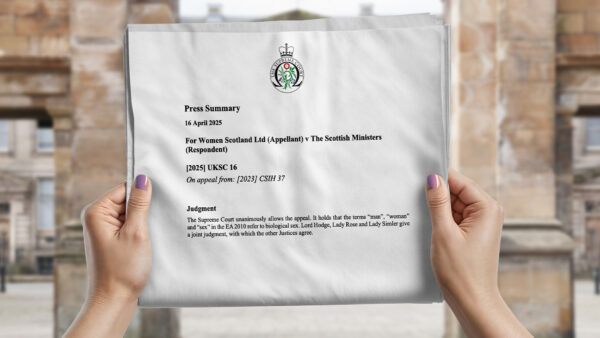Latest Posts

Yesterday’s Losses, Tomorrow’s Gains
The 2024/25 tax year has just come to a close, which means the window is now open to submit that year’s tax returns.
If you have been investing in cryptoassets, you need to think carefully about whether you have a tax liability, and whether you need to submit a tax return. Now would be a good time to review our previous guidance on cryptoasset taxation.
Hopefully you have some big gains to report. However, sometimes you win, and sometimes you lose. Not every year is necessarily going to be a success: sometimes you may find that your losses in a tax year outweigh your gains.
While no-one enjoys losses, there is one silver lining, as you can carry them forward to future years. This means that when (hopefully) you make gains in the future, you will be able to offset these losses, and so reduce your Capital Gains Tax bill.
However, there is a catch, as you can only make use of losses that you have reported to HMRC within four years of the end of the tax year in which they arose. If you fail to tell HMRC about them within this period, then they are simply wasted.
You can of course report losses within a tax return, but if you are not required to submit a tax return for the relevant tax year, you can still simply write to HMRC to claim the losses. They will then be available to carry forward indefinitely until you have capital gains to offset them against.
For example, after a bad year of cryptoasset investments you might find yourself with net losses of £100,000. Then, in a future year, you might end up with net gains of £200,000. Provided you remembered to claim the losses in time, you can offset the loss, which (at a top Capital Gains Tax rate of 24%) will save you £24,000 in tax.
It’s not just your actual losses that can be claimed. If you have tokens that have become worthless, or if you have lost one of your keys, you may be able to put in a negligible value claim, which generates a loss as though you had sold the token for a nil value.
The cryptoasset experts in the Private Wealth & Tax team at Quastels can help with these issues. They are able to calculate your income and gains (or losses) and can assist in reporting this to HMRC. They can also provide advice on tax and estate planning with cryptoassets, as well as advising on the law regarding digital assets and digital estate planning generally.
Read More
Investor Confidence and the UK’s Crossroads: Why the Reintroduction of the Investor Visa Matters
The UK finds itself at a delicate juncture. In the wake of recent tax reforms, most notably the abolition of the non-dom regime and the extension of inheritance tax to foreign assets, the country is facing a sustained departure of high net worth individuals. For many international investors, the UK’s longstanding appeal as a secure and tax-efficient destination is being reconsidered.
This shift is more than symbolic. The movement of wealth, capital, and confidence away from the UK poses tangible economic consequences: reduced inward investment, a shrinking tax base, and a weakening of the UK’s position as a global financial hub. The figures are stark. Thousands of millionaires are now exploring or executing relocation strategies. In their wake, they leave behind not only tax contributions, but also the entrepreneurial energy, philanthropic support, and ecosystem investment that underpin vibrant economies.
In this context, discussions around reviving the UK’s investor visa take on renewed significance. Once viewed as a flawed and underutilised route, the Tier 1 Investor Visa was closed in 2022 following criticism over its due diligence framework and the lack of demonstrable economic benefit. However, a modern and fit for purpose investor route, anchored in transparency, strategic alignment, and economic substance, could form part of a broader effort to reframe the UK’s value proposition to globally mobile individuals.
What Might the New Investor Visa Look Like?
In his earlier article The Return of the Investor Visa, Jayesh Jethwa explored the potential contours of a revised scheme—one that reflects both political realities and economic imperatives. Based on that vision and recent reporting, the reintroduced visa is likely to move away from passive wealth migration and instead favour targeted, high-impact investment aligned with the UK’s industrial strategy.
Key features may include:
- Strategic Investment Sectors: Applicants may be required to invest in designated sectors such as artificial intelligence, life sciences, green technology, advanced manufacturing, and infrastructure.
- Increased Thresholds: The minimum investment may be raised significantly from the previous £2 million benchmark, possibly starting from £5 million or higher, with incentives for greater economic contribution.
- Active Participation: Rather than allowing wholly passive investment, applicants could be encouraged or required to take a substantive role in business operations, innovation partnerships, or job creation.
- Enhanced Due Diligence: Learning from the failings of the previous scheme, there will likely be a more robust vetting process, with heightened scrutiny of source of funds and investor background.
- Performance-Based Extensions: Continued leave or settlement may depend on demonstrable economic impact, such as job creation, capital deployment in qualifying businesses, or technology transfer.
This would mark a departure from the model of “residence for capital” that defined the original investor route, replacing it with a framework rooted in contribution, alignment with national priorities, and reputational safeguards.
Crucially, a reimagined investor visa must avoid the pitfalls of its predecessor. Rather than merely attracting capital for capital’s sake, it should be designed to channel investment into sectors that support long term national priorities such as technology, clean energy, infrastructure, and life sciences. It must also go hand in hand with enhanced scrutiny of applicants, ensuring the integrity of funds and alignment with the UK’s legal and ethical standards.
This is not about selling visas. It is about recognising the contribution that responsible and engaged investors can make to a country’s prosperity and designing policy accordingly. In doing so, the UK has an opportunity to regain ground lost in recent months, rebuild investor confidence, and signal a strategic openness to the world.
At Quastels, we have long advised clients on routes that combine personal relocation with meaningful economic engagement. As pressure mounts for a more globally competitive immigration framework, we are working closely with our clients and partners to anticipate developments and design long term strategies.
The return of the investor visa, if done right, offers a chance not just to stem the tide of departures, but to recalibrate the UK’s approach to global talent, capital, and economic partnership.
Read More
What UK Employers Must Do Now After Supreme Court Clarifies Legal Definition of ‘Sex’
The UK Supreme Court has confirmed that the term “sex” in the Equality Act 2010 refers to biological sex, not gender identity. In other words, even where somebody identifies as trans, they do not change sex for the purposes of the Equality Act even where they have a Gender Recognition Certificate (GRC).
This ruling, from the case For Women Scotland Ltd v The Scottish Ministers, has major implications for workplace policies, particularly those relating to single-sex spaces and services. In response, the Equality and Human Rights Commission (EHRC) has released some interim guidance affirming that where the law allows for single-sex spaces, these should be based on biological sex.
While many welcome the clarity this ruling provides, employers must not lose sight of a crucial point: transgender individuals–including transsexuals with or without a Gender Recognition Certificate–are still protected under the Equality Act (Eq Act).
Under the Eq Act, “gender reassignment” is a protected characteristic. This means anyone who is undergoing, has undergone, or is proposing to undergo a process of gender transition is protected from discrimination, harassment, and victimisation in the workplace. That protection stands regardless of the Supreme Court’s interpretation of “sex.”
So, while employers must now align certain policies with the biological definition of sex, they continue to have a legal and moral duty to treat transgender staff with dignity and fairness.
Here are five key steps employers should take now:
1. Review and amend relevant policies
Audit EDI and other policies related to single-sex spaces (e.g. toilets, changing rooms, sleeping facilities), roles, or services. Ensure they align with the clarifies legal definition of sex while remaining consistent with your broader equality commitments.
Action: Clearly define single-sex access as based on biological sex and document your rationale.
2. Offer inclusive alternatives where possible
The EHRC encourages practical solutions where single-sex spaces may exclude trans individuals. While the Supreme Court ruling defines single space facilities to be delineated by reference to biological sex, there remains a need to ensure the health and safety, dignity and privacy of all employees. So, providing some gender-neutral facilities (in the form of a room which is lockable from the inside) should be considered.
Action: Consider inclusive options and document any reasons why possible options cannot be accommodated.
3. Communicate changes sensitively
Policy updates should be rolled out transparently and respectfully to avoid creating a degrading or hostile environment for transgender individuals. Help staff understand the legal context while affirming your commitment to a respectful workplace for all.
Action: Deliver briefings and written guidance that reinforce both compliance and inclusion, and avoid any knee-jerk decisions in excluding individuals from a workspace.
4. Train managers and HR teams
Your leaders must understand how to implement the new definitions without breaching anti-discrimination protections.
Action: Train staff to apply the updated policies lawfully and with empathy, especially in sensitive situations.
5. Stay informed
The EHRC plans to issue further detailed guidance. Stay alert to updates and seek legal advice when needed to navigate grey areas.
Action: Set a calendar for regular legal and policy reviews, and sign up for alerts from our team.
Conclusion
The court’s ruling provides legal clarity on “sex,” but the Eq Act still robustly protects trans individuals from discrimination. Employers are therefore encouraged to ensure their leaders, managers and HR are fully versed on how to manage changes following the Supreme Court ruling to continue to support an inclusive workplace and minimise the risk of breaching the Eq Act.
Read More